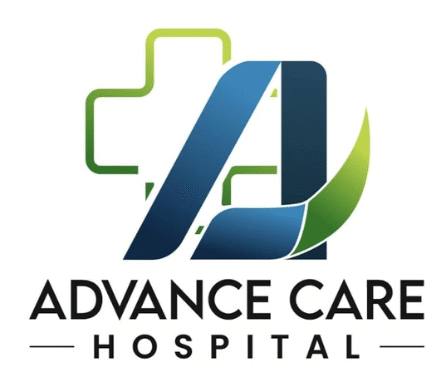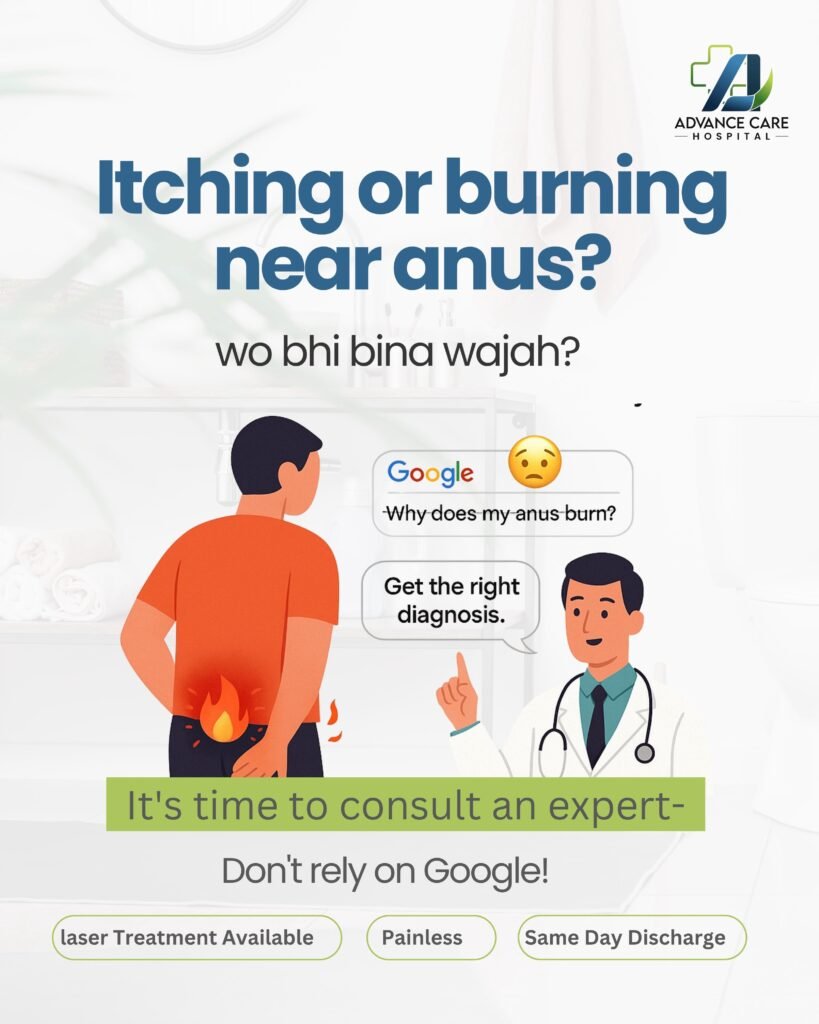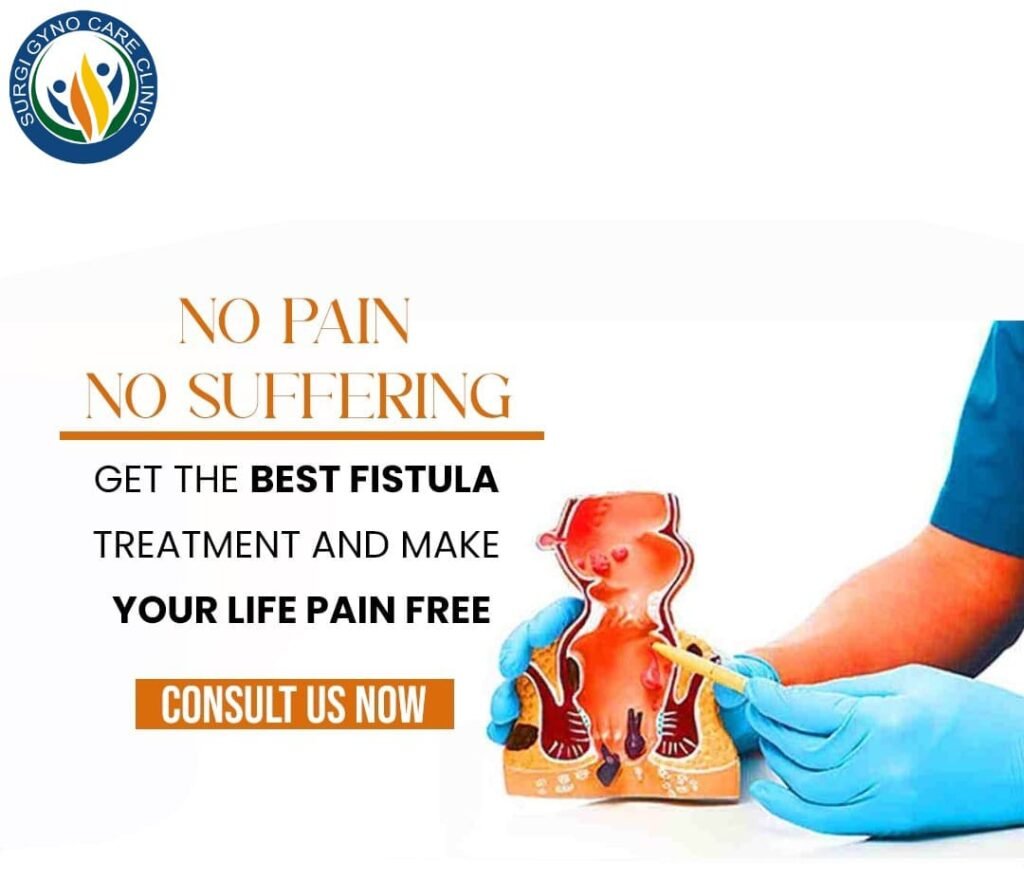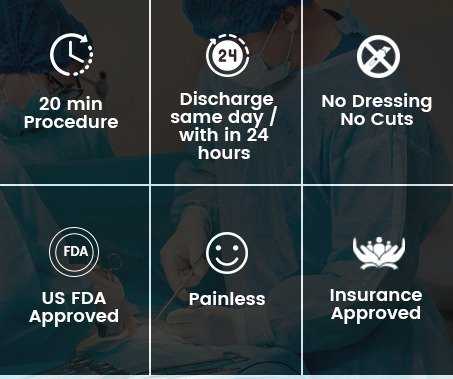Effective anal fissure treatment in agra by Dr. Shavez khan
Anal fissures are small tears in the skin around the anus. Dr. Shavez Khan offers top-notch anal fissure treatment in Agra, specializing in effective and affordable minimally invasive laser surgery. To consult the best anal fissure specialist in Agra, book an appointment with Dr. Shavez Khan today! What is anal fissure? An anal fissure is a crack around the anal region, causing severe pain and bleeding during bowel movements. It occurs due to trauma in the inner lining of the anus, often from hard stools or chronic diarrhea. Leaving it untreated can lead to chronic fissures, making treatment more challenging and increasing the risk of complications. Best Hospital for Anal Fissure in Agra Types of anal fissure: Acute anal fissure Chronic anal fissure Risk factors of anal fissure: Advanced age Constipation Recent childbirth Crohn’s disease Inflammatory bowel disease Anal intercourse Home remedies for anal fissure: Take sitz baths Add fiber to your diet Take stool softeners Avoid straining during bowel movements Drink adequate fluids Why Choose Dr. Shavez Khan? Private room for patients with attendant stay USFDA approved fissure treatment Insurance covers the treatment Hassle-free insurance approval All insurances covered Surgery under affordable package Post surgery- Free 2 follow ups Laser Fissure surgery package includes: Private room for patients with attendant stay Blood test ( Preoperative profile) Medicine used in operation theatre and wards ( excluding DM, HTN and Nebulisation medication, Blood transfusion charges) Anaethesia doctor charges Diagnosis : To diagnose an anal fissure, the doctor will take your medical history and perform a physical examination, including a gentle inspection of the anal region. Anoscopy, flexible sigmoidoscopy, and colonoscopy may be recommended to rule out other conditions and determine the best course of treatment. Procedure While home remedies may provide temporary relief, advanced laser-based techniques offered by Dr. Shavez Khan are highly effective for fissure treatment in Agra. Laser surgery is preferred over traditional methods for its precision and minimal discomfort. If surgery is necessary, consulting the best fissure specialist for laser treatment is recommended to ensure optimal results and a faster recovery. If you’re experiencing symptoms of anal fissure, don’t hesitate to consult the nearest fissure specialist in Agra for timely treatment. Dr. Shavez Khan provides expert care and advanced surgical options to alleviate your discomfort and promote healing Words of Dr Shavez khan about fissure ( fissure specialist in agra) Anal fissure is a common and uncomfortable condition affecting many people at some point in their lives. It involves a small cut or tear in the lining of the anal canal, usually caused by passing hard stools or anal injury. Symptoms may include pain, discomfort, and bright red blood during bowel movements or while wiping. However, this condition is manageable, and there are various treatments available to improve quality of life. It’s crucial not to delay treatment, as it can lead to complications such as anal infections or Crohn’s disease. If you’re experiencing symptoms, it’s advisable to consult an experienced proctologist for personalized treatment options based on the severity of your condition. Take care of yourself and seek professional help to alleviate discomfort and promote healing. Effective cure for anal fissure available in Agra Dr. Shavez Khan provides excellent patient care by offering advanced and effective procedures for fissure treatment in Agra. Our medical coordinators are available round-the-clock to assist patients in every way possible. If left untreated, anal fissures can lead to complications such as chronic fissures, anal fistulas, or anal stenosis. While home remedies may offer temporary relief, our clinics in Agra are equipped with the latest tools and technology to ensure permanent relief from anal fissures. Our medical specialists are highly trained in laser surgeries, resulting in a high success rate for fissure treatment. Advanced anal fissure surgery in Agra guaranteed by Dr. Shavez Khan Dr. Shavez Khan’s clinics are renowned for their laser-based procedures, including the treatment of fissures, piles, anal fistulas, varicose veins, and pilonidal sinus. We understand that surgery can be complicated, so we strive to provide a hassle-free experience for our patients. From booking appointments to post-treatment follow-ups, our team ensures seamless care. With clinics in three cities – Delhi NCR, Hyderabad, and Bangalore – we also offer free cab facilities on the day of surgery. How to relieve fissure itching? Here are some simple tips to relieve fissure itching: Avoid scratching the fissure area to prevent further irritation. Apply compression to the area or take an oatmeal bath for relief. Trim your nails to avoid scratching the area, especially during sleep. Wear breathable cotton underwear to keep the area dry and avoid moisture buildup. Clean the anal area gently with lukewarm water and mild soap, avoiding scrubbing. Avoid irritants such as perfumed soaps, bubble baths, and harsh wipes. Watch your diet by cutting down on coffee, cola, spicy foods, and citrus fruits. Use gels or ointments like zinc oxide or petroleum jelly for quick relief. Maintain firm bowel movements by adding fiber to your diet or using fiber supplements. Difference between anal fissure and anal fistula Anal fissure and anal fistula are common anorectal diseases with similar symptoms, including pain, discomfort, and blood in stools. However, they differ in nature and treatment. An anal fissure is a tear or crack in the skin near the anus, while an anal fistula is a tube-like passage in the anal canal or rectum. While fissures often heal within weeks, fistulas may require surgical intervention if left untreated. Both conditions can be managed with medicines initially, but permanent treatment may require surgery, either open or laser-based, performed by a proctologist or colorectal surgeon. It’s essential to seek medical intervention for both conditions to prevent complications and ensure proper healing.
Effective anal fissure treatment in agra by Dr. Shavez khan Read More »













